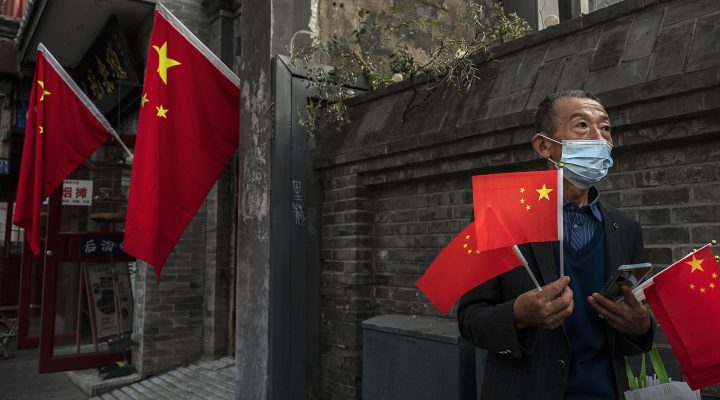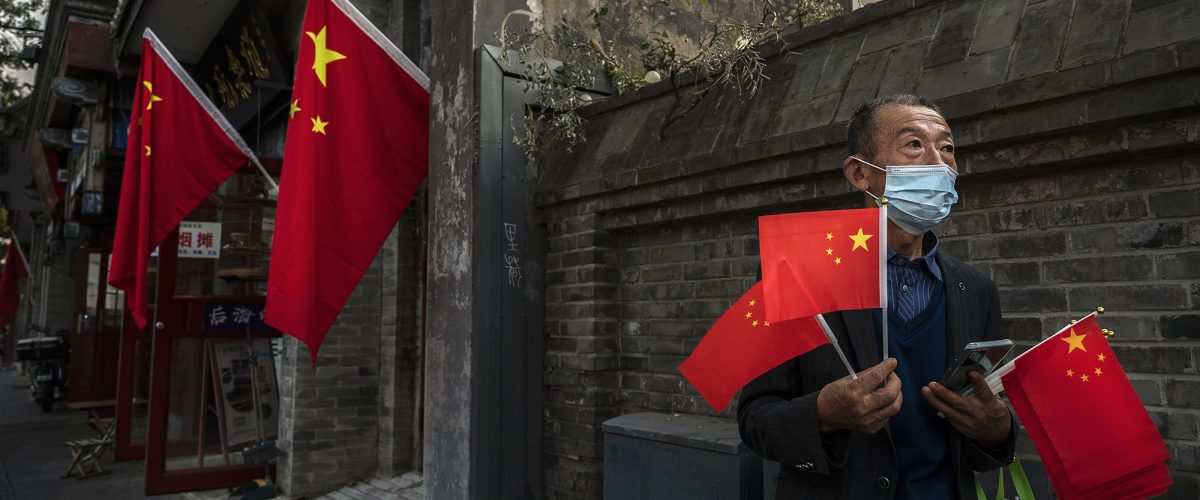The Chinese Communist Party uses government-sanctioned faith organizations to control institutionalized religion and to force religious groups to promote the political aims of the state, the U.S. Commission on International Religious Freedom said in a new report about religion in China.
Authorities also interfere with the most detailed aspects of faith groups, including rewriting Scripture and altering sermons to either omit objectionable content or to include rhetoric lauding the state and party, USCIRF said.
“State-controlled religious organizations remain an integral part of the CCP’s (Chinese Communist Party’s) institutional control of religion. These organizations are expected to be absolutely loyal to the CCP, to serve as conduits and endorsers of state propaganda, and to facilitate the implementation of the CCP’s religious policies — notably the deeply coercive policy on the sinicization of religion.”
These organizations are expected to be absolutely loyal to the CCP, to serve as conduits and endorsers of state propaganda.
The role of the sanctioned religious institutions makes them at once agents of official manipulation and casualties of it, USCIRF warned.
“The integral involvement of these state-controlled religious organizations in such repression renders them complicit in the CCP’s systematic, ongoing and egregious religious freedom violations. On the other hand, these religious organizations are also ironically victims of the CCP’s religious policy; they are deprived of genuine practice of religion without state interference, and any perceived disloyalty and public disagreement with the CCP and government leads to severe punishment.”
China utilizes seven state-controlled groups, in addition to the government and the party, to exercise firm control over every aspect of the religious life of its citizens. USCIRF identified them as the Buddhist Association of China, the Chinese Taoist Association, the Chinese Catholic Patriotic Association, the Bishops’ Conference of the Catholic Church in China, the Protestant Three-Self Patriotic Movement, the China Christian Council and the Islamic Association of China. Each is comprised of local branches typically referred to as “patriotic religious associations.”
The organizations are directly overseen by the party’s United Front Work Department and the government’s State Administration for Religious Affairs and are responsible for managing the five religions officially recognized by China — Catholicism, Protestantism, Islam, Buddhism and Taoism.
“Religious groups that belong to one of these five religions must register with the government,” USCIRF said. “Authorities often target for repression independent groups, such as Protestant house churches and underground Catholics, that have refused to join these officially recognized religious organizations. As such, the CCP uses these religious organizations as a means to a political end, rather than out of any sense of genuine interest in protecting the religious freedom of communities that the organizations claim to represent.”
To help reach that end, religious groups must demonstrate patriotism through all teachings and activities.
Religious groups must demonstrate patriotism through all teachings and activities.
“Political loyalty to the CCP is also deeply embedded in the bylaws of state-controlled religious organizations” including through bylaws that affirm them as “‘patriotic religious organizations,’ with an express purpose to ‘unite and guide’ members of their respective religious communities to ‘support the leadership of the Chinese Communist Party and the socialist system,’” the report states.
Officially recognized faith groups in China also are legally obligated to promulgate, implement and enforce state laws “often at the expense of the religious communities they claim to represent,” USCIRF said.
“These religious organizations must subject themselves to ongoing supervision, monitoring and control by relevant CCP and government agencies on a wide variety of religious matters, ranging from the management of religious schools and places of worship to the selection of clergy and other leadership positions. Noncompliant groups and individuals run the risk of official punishment, which could range from suspension to administrative or criminal penalties.”
Even with those controls in place, Chinese authorities remain especially suspicious of Christianity, Islam and Tibetan Buddhism, seeing them as sources of attempted Western influence and infiltration. Underground Catholic congregations and the Protestant house church movement are considered leading culprits, USCIRF said.
But the answer is always more control.
“The seven state-controlled religious organizations routinely organize meetings and issue directives to their affiliate religious associations and places of worship, such as mosques and churches, to ensure compliance with the CCP’s religious policies,” the report notes. “Nationwide, many state-sanctioned places of worship have been turned into propaganda centers to enforce the CCP’s ideology and policies. They are forced to display Communist propaganda posters, including images and quotes of Communist leaders such as Xi Jinping and Mao Zedong, although the display of such images violates religious principles of some religions.”
Ministers often have even more hoops to jump through, the report added. “State-sanctioned clergy members are forced to incorporate CCP ideology and policies into their sermons or speeches.”
China’s nationwide sinicization efforts have been especially hard on people of faith, USCIRF said. “For example, state-controlled religious organizations have been involved in altering, censoring and controlling the content of Christian, Islamic and Tibetan Buddhist religious texts (such as the Bible and the Qur’an), doctrines, sermons and hymns to ensure their alignment with the CCP’s interpretation of religion, policy and political objectives.”
The state also has turned to demolition to see that its cultural and religious goals are met. Religious organizations “also have been involved in promoting and facilitating the government’s sinicization efforts to forcibly demolish, remove or modify places of worship (such as mosques, churches and temples) and architectural styles and religious symbols (such as crosses and mosque domes) deemed too foreign or insufficiently sinicized.”
Any protest of such policies is met with harsh punishment, USCIRF noted. “For example, demolition campaigns have included a number of state-sanctioned places of worship, such as the Sacred Heart Catholic Church in Ghulja (Yili), Xinjiang. Also, state-sanctioned religious leaders who oppose, protest or resist government policies run the risk of official reprisal.”
Related articles:
American Christianity in China also imports gender bias and Calvinism | Analysis by Rick Pidcock
In survey of religious oppression across the globe, Russia, Afghanistan and China take center stage


